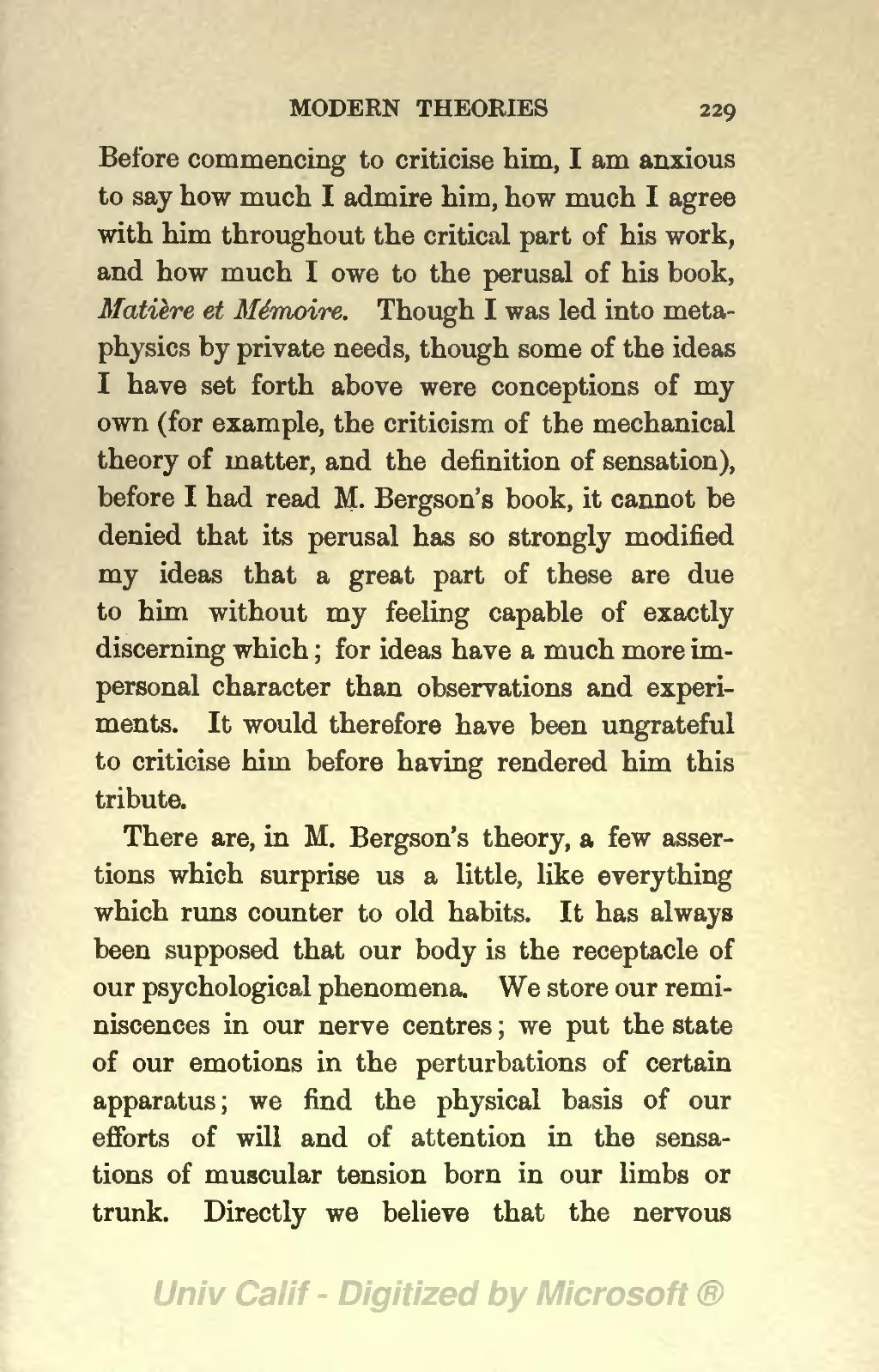Before commencing to criticise him, I am anxious to say how much I admire him, how much I agree with him throughout the critical part of his work, and how much I owe to the perusal of his book, Matière et Mémoire. Though I was led into metaphysics by private needs, though some of the ideas I have set forth above were conceptions of my own (for example, the criticism of the mechanical theory of matter, and the definition of sensation), before I had read M. Bergson’s book, it cannot be denied that its perusal has so strongly modified my ideas that a great part of these are due to him without my feeling capable of exactly discerning which; for ideas have a much more impersonal character than observations and experiments. It would therefore have been ungrateful to criticise him before having rendered him this tribute.
There are, in M. Bergson’s theory, a few assertions which surprise us a little, like everything which runs counter to old habits. It has always been supposed that our body is the receptacle of our psychological phenomena. We store our reminiscences in our nerve centres; we put the state of our emotions in the perturbations of certain apparatus; we find the physical basis of our efforts of will and of attention in the sensations of muscular tension born in our limbs or trunk. Directly we believe that the nervous
